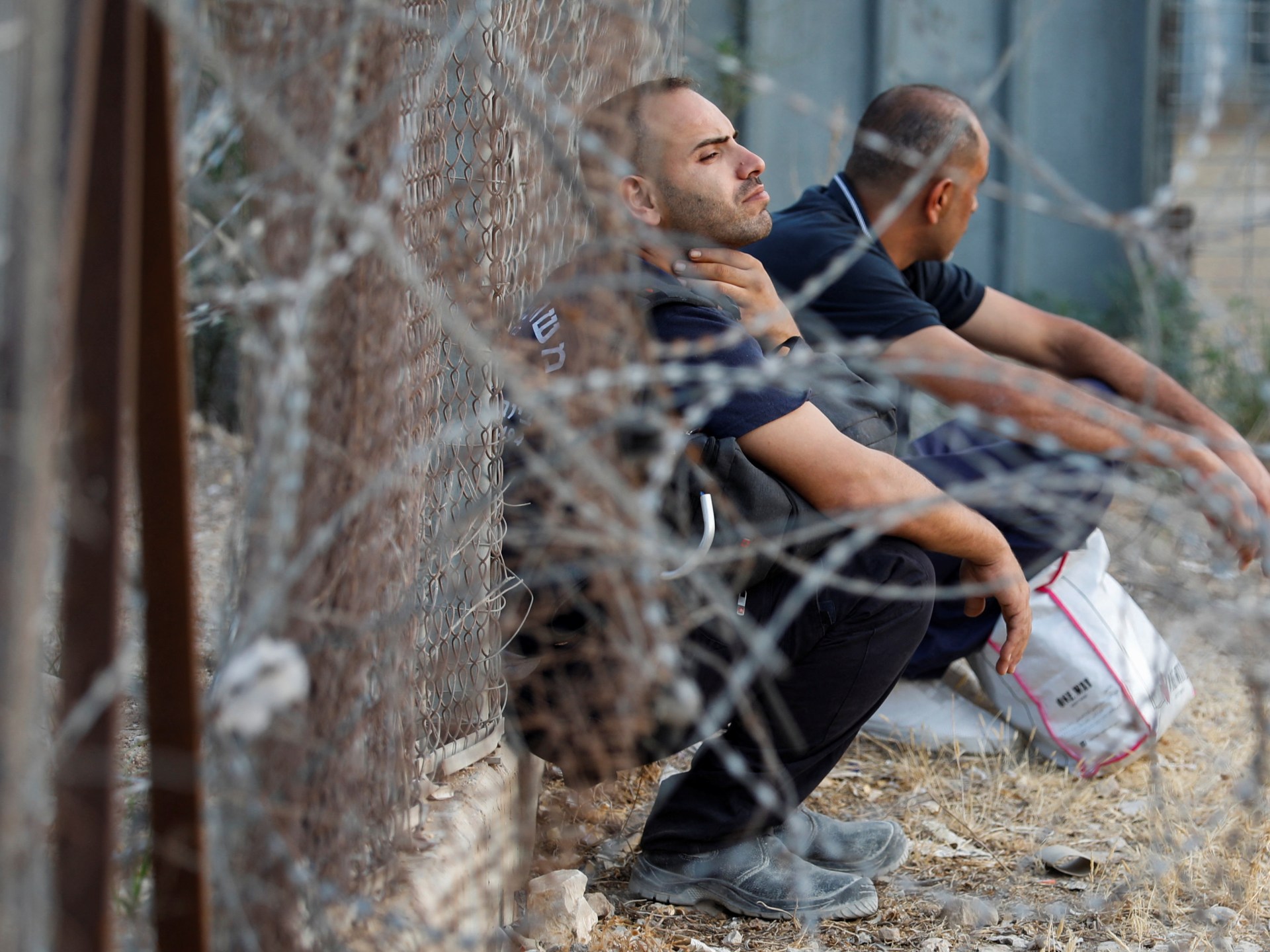After the Al-Aqsa flood, tens of thousands of Palestinian workers were prevented from crossing the Green Line (Reuters)
Israeli Interior Minister Moshe Arbel called for canceling the ban on entry of Palestinian workers from the West Bank, warning of rising residential real estate prices and reliance on illegal labor.
He said in a letter to Israeli Prime Minister Benjamin Netanyahu, reported by Haaretz newspaper, that the ban on entry of Palestinian workers led to a significant delay in the delivery of new apartments.
In his letter, he warned that this ban caused great economic harm to real estate buyers and contractors alike. At the same time, he warned of fears of the collapse of companies in the Israeli construction sector.
It is noteworthy that before the Al-Aqsa flood operation on October 7, Israel relied on approximately 200,000 Palestinian workers who entered it daily from the West Bank to work.
Palestinian workers represented the largest percentage of the total number of workers in the construction sector in Israel.
Moshe Erbil called for lifting the ban imposed on workers from the West Bank (Israeli press)
The most prominent repercussions of the war on Gaza on the Israeli construction sector in numbers:
The Israeli construction sector suffers losses of about $644 million per week due to the war.
3% expected rate of decline in GDP due to construction sector losses.
100,000 Palestinian workers were working in the Israeli construction sector before the war.
Since the outbreak of the war, the entry of Palestinian workers into Israel has completely stopped.
50% of construction sites are closed due to a severe labor shortage.
140 thousand workers, the current shortage in the Israeli construction sector.
A plan was drawn up to bring in 70,000 workers from countries such as India, China, Sri Lanka and Uzbekistan.
Only 30% productivity rate on construction sites currently.
36 months is the expected delay period for the delivery of new apartments.
50 labor recruitment companies were operating before the war.
150 new companies are applying for licenses to bring in labor.
Security concerns and economic losses
Earlier this month, the Israeli newspaper "Jerusalem Post" quoted 12 members of the Knesset (Parliament) that freezing economic sectors in Israel as a result of preventing Palestinian workers from entering the Green Line for work costs 3.1 billion shekels per day ($820 million), based on data. From the Ministry of Finance.
Last February, the Israeli Ministry of Justice warned of the potential dangers of the decision to import foreign workers, as it may lead to an increase in the pace of human trafficking. The decision, led by the Ministry of Housing and implemented by private parties, conflicts with the Ministry of Justice and the Population and Immigration Authority. It also contradicts the approach of the US State Department unit to monitor global efforts to combat human trafficking.
This step may affect Israel's classification in upcoming American tracking reports, which may lead in advanced stages to the imposition of economic sanctions, according to the same newspaper.
Source: Al Jazeera + Israeli press

